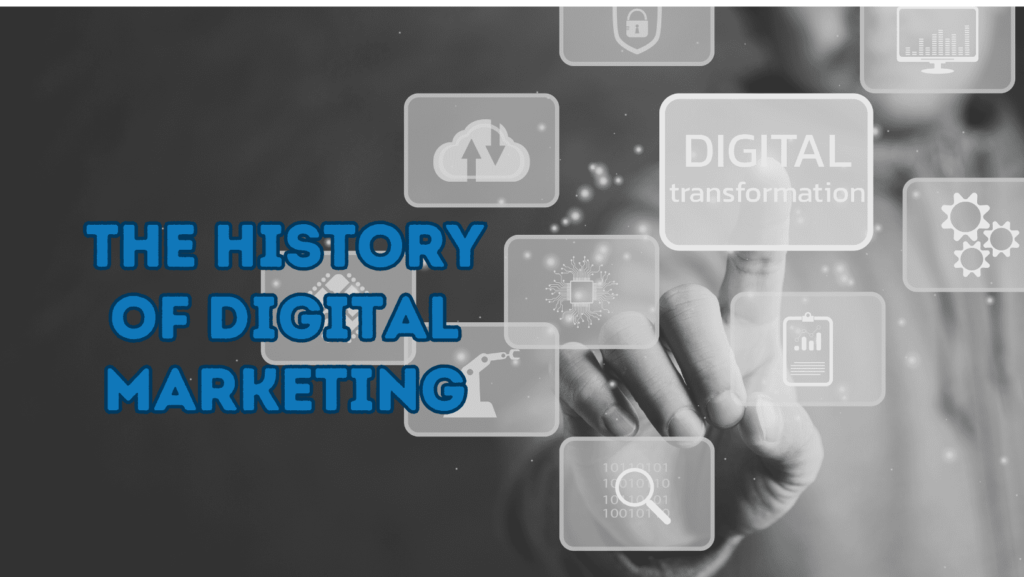The history of digital marketing dates back to the emergence of the internet and the subsequent evolution of technology.
Brief overview:
Origins (1990s): The internet became accessible to the public in the early 1990s, and marketers began to recognize its potential for reaching audiences. Initially, this was through basic web pages, emails, and banner ads.
Search Engines (late 1990s): Search engines like Yahoo! and AltaVista started gaining prominence. Marketers began optimizing websites for these platforms by incorporating keywords, which laid the groundwork for search engine optimization (SEO).
Early 2000s: Google became the dominant search engine, and its AdWords platform was launched in 2000, allowing advertisers to bid on keywords for sponsored search results. This marked the beginning of pay-per-click (PPC) advertising.
Social Media Era (mid-2000s): Platforms like MySpace, LinkedIn, and, notably, Facebook (which opened to the public in 2006) provided new avenues for digital marketing. Brands started engaging with users directly through social media marketing.
Mobile Marketing (late 2000s): The rise of smartphones led to a shift in marketing strategies. Marketers began optimizing content for mobile devices and leveraging SMS marketing, mobile apps, and location-based services.
Content Marketing (2010s): Valuable and engaging content became a focal point for marketers. Blogging, video marketing (YouTube), podcasts, and other content formats gained traction as effective ways to engage audiences.
Data Analytics and Personalization: With advancements in technology and data analytics, marketers started using consumer data to personalize marketing efforts. This led to targeted advertising, personalized email campaigns, and more sophisticated marketing automation.
AI and Automation (present): Artificial intelligence, machine learning, and automation have revolutionized digital marketing. AI-driven tools enable better targeting, personalized experiences, chatbots for customer service, and predictive analytics.
Video Dominance: Video content has become increasingly important in digital marketing, with platforms like TikTok, Instagram Reels, and live streaming gaining popularity. Brands are focusing more on creating engaging video content to connect with audiences.
Privacy Concerns and Regulation: Increased awareness of data privacy has led to stricter regulations (such as GDPR and CCPA) governing the collection and use of consumer data, impacting how marketers can target and personalize their campaigns.











